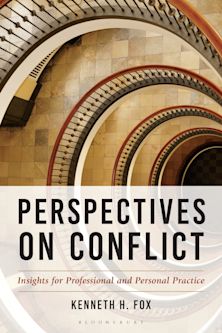- Home
- ACADEMIC
- Politics & International Relations
- Politics - Other
- Religion and the Culture Wars
Religion and the Culture Wars
Dispatches from the Front
Religion and the Culture Wars
Dispatches from the Front
For information on how we process your data, read our Privacy Policy
Thank you. We will email you when this book is available to order
You must sign in to add this item to your wishlist. Please sign in or create an account
Description
As the 20th Century draws to a close, cultural conflict plays an increasingly dominant role in American politics, with religion acting as a catalyst in the often bitter confrontations ranging from abortion to public education. These insightful essays by leading scholars in the field examine the role of religion in these 'culture wars' and present a mixed assessment of the scope and divisiveness of such conflicts.
Table of Contents
Part 2 Part I: The Christian Right
Chapter 3 The Politics of the Christian Right
Chapter 4 The Moralizing Minority: Christian Right Support Among Political Contributors
Chapter 5 A Look at the "Invisible Army": Pat Robertson's 1988 Activist Corps
Chapter 6 Onward Christian Soldiers: Religious Activist Groups in American Politics
Part 7 Part II: Religion and Political Activists
Chapter 8 The Christian Right in the Republican Party: The Case of Pat Robertson's Supporters
Chapter 9 Faith and Election: The Christian Right in Congressional Campaigns/ 1978-1988
Chapter 10 Politics in a New Key: Religiosity and Participation Among Political Activists
Chapter 11 The Bully Pulpit: Politics and the Southern Baptist Clergy, 1980-1992
Part 12 Part III: Evangelical Voters
Chapter 13 Grasping the Essentials: The Social Embodiment of Religion and Political Behavior
Chapter 14 Measuring Fundamentalism: An Analysis of Different Operational Strategies
Chapter 15 The Spirit-Filled Movements and American Politics
Chapter 16 The Puzzle of Evangelical Protestantism: Core, Periphery, and Political Behavior
Part 17 Part IV: Religion and Political Behavior
Chapter 18 Religious Voting Blocs in the 1992 Election: The Year of the Evangelical? Lyman A. Kellstedt
Chapter 19 Has Godot Finally Arrived? Religion and Realignment
Chapter 20 The Political Relevance of Religion: The Correlates of Mobilization
Chapter 21 Religion and Foreign Policy Attitudes: The Case of Christian Zionism
Chapter 22 Index
Product details
| Published | 01 Jan 2000 |
|---|---|
| Format | Ebook (Epub & Mobi) |
| Edition | 1st |
| Extent | 400 |
| ISBN | 9780585163826 |
| Imprint | Rowman & Littlefield |
| Series | Religious Forces in the Modern Political World |
| Publisher | Bloomsbury Publishing |
About the contributors
Reviews
-
. . . a judicious blend of previously published materials and new scholarship, a book that will convince even the most skeptical observer that religion matters-and matters deeply-in American political attitudes and behaviorrrrr
Ken Wald, University of Florida
-
The scholarship displayed in this diverse collection of essays is first-rate, accessible to the general reader and sufficiently detailed enough to provide insight and testable hypotheses for researchers in this field.
Thomas Dowdy, Oklahoma Baptist University
-
An essential guide to the full comprehension of the multifaceted nature of Americans' political beliefs.
American Political Science Review
-
provides a rich resource for other scholars to mine and build a richer understanding of the phenomenon of the religious right than one can gain from journalists and scholars without the familiarity and research skills of the "gang of four."
Dennis McNutt, Pneuma: The Journal Of The Society For Pentacostal Studies
-
. . . a rich collection of essays tracing the influence of religion in American political life at the end of the Twentieth Century. The Gang of Four like the esteemed householder of the Gospel parable, has brought from its treasury both the new and theold.
Clarke E. Cochran, Texas Tech University
-
. . . a rich collection of essays tracing the influence of religion in American political life at the end of the Twentieth Century. The "Gang of Four" liketheesteemed householder of the Gospel parable, has brought fromits "treasury both the new and the old."
Clarke E. Cochran, Texas Tech University



































